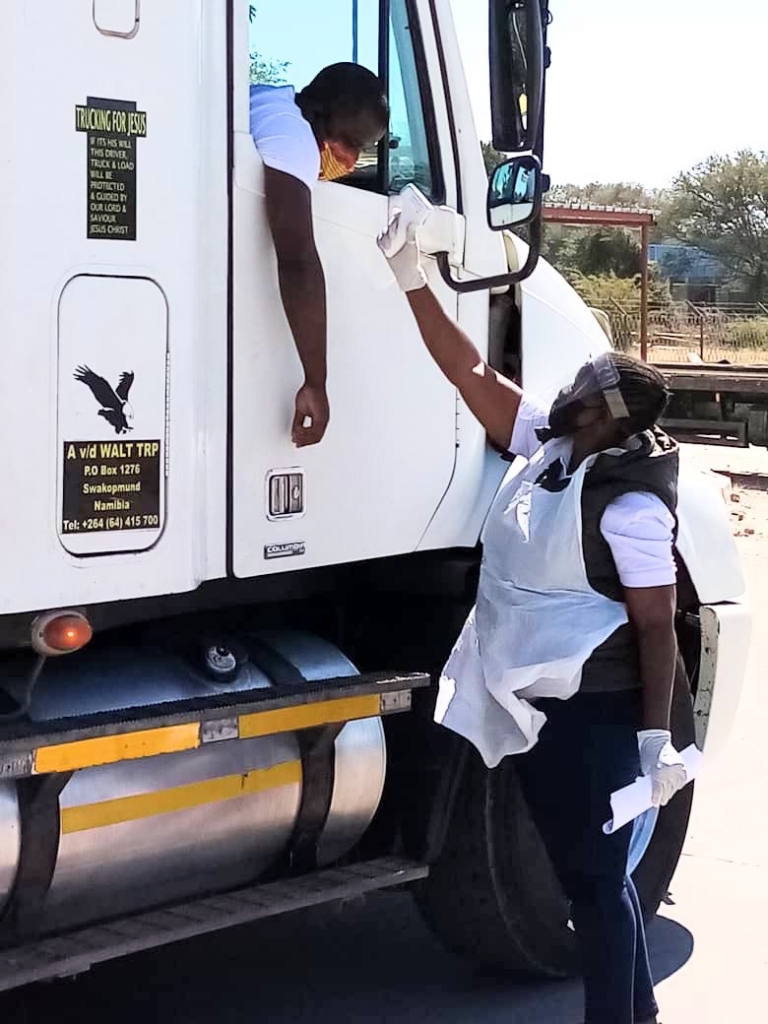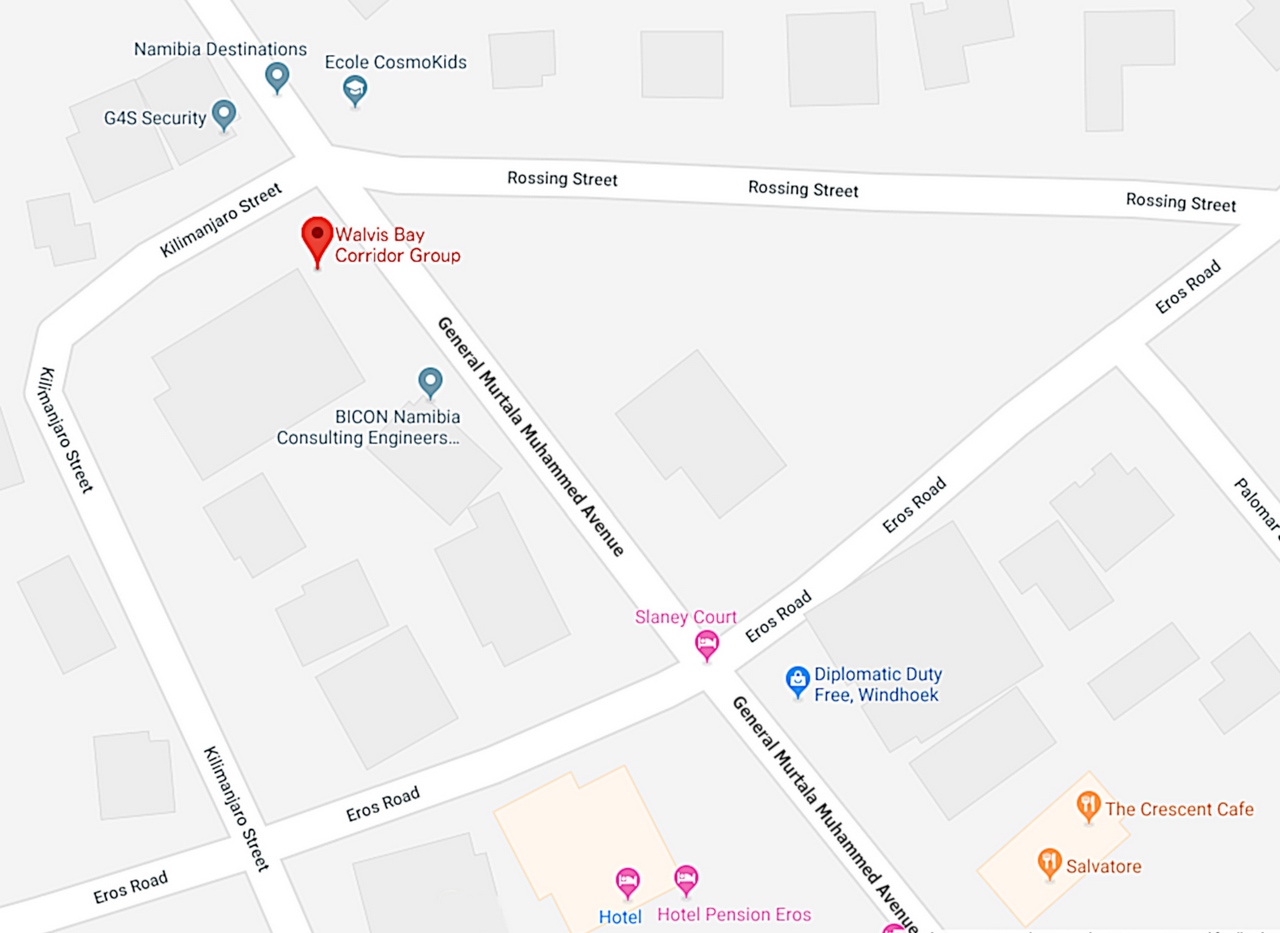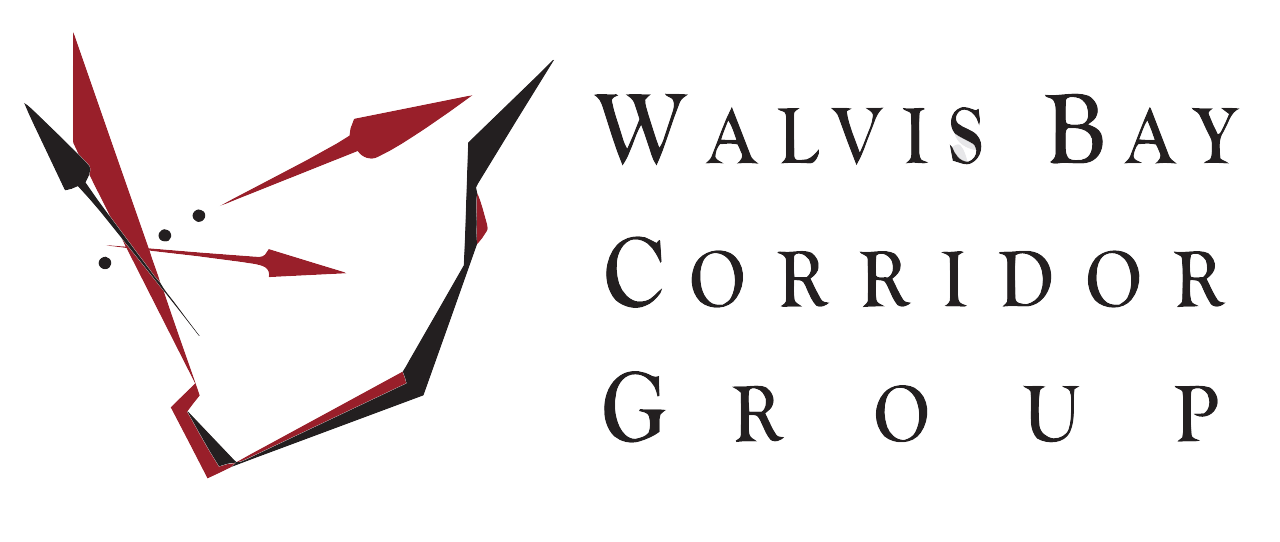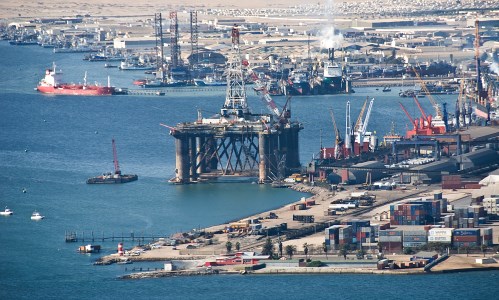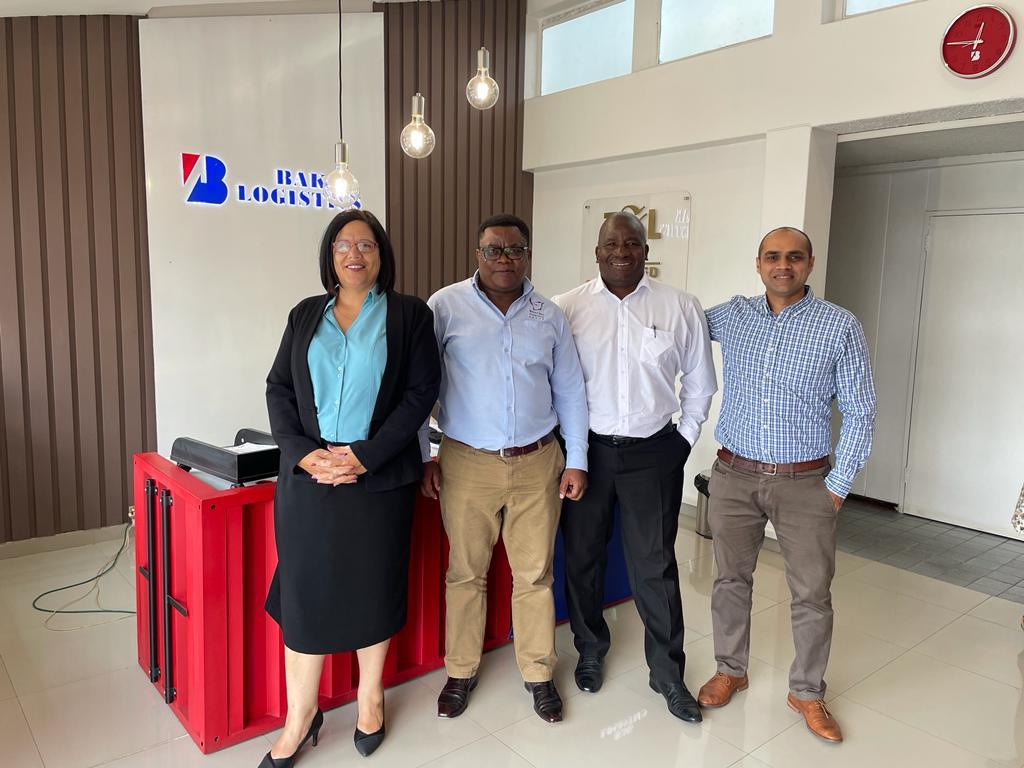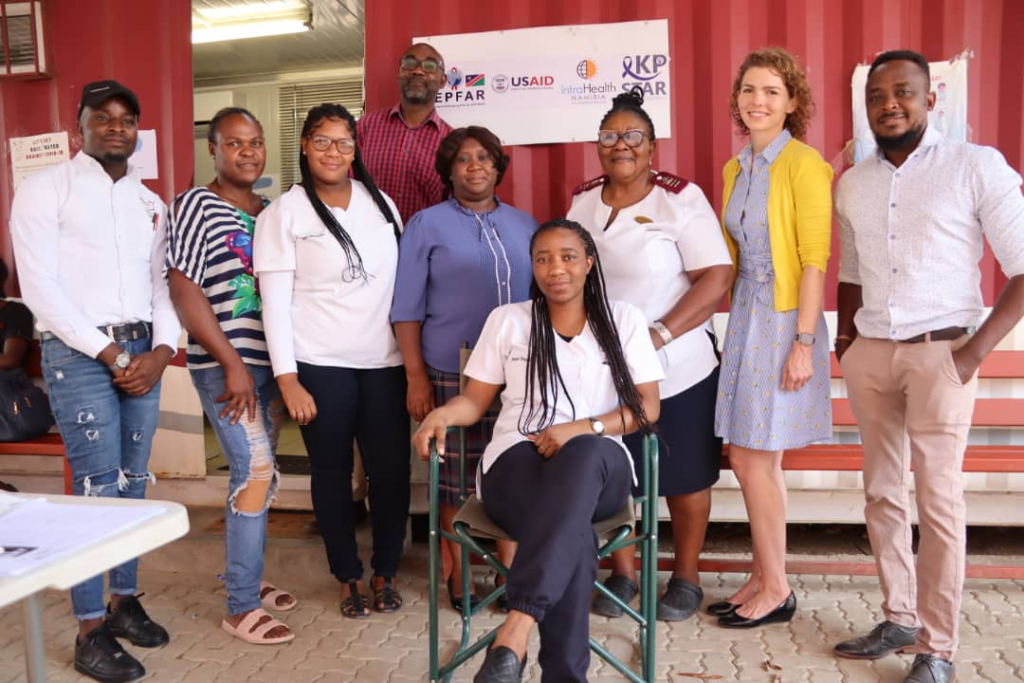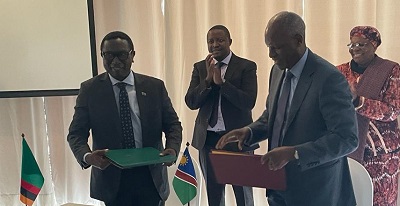New measures instituted at Katima border post to keep cargo flowing safely
Posted: 5 Jun 2020
Customs officials at the Katima Mulilo Border Post has ensured that, despite the unprecedented state of emergency regulations regarding border control across the southern African region to halt the spread of coronavirus, the essential flow of goods continue.
As cross border trade remains one of the country’s major priorities, customs officials have had to reinvent their processes in order to facilitate the movement of cargo at the border.
According to Deputy Director: Customs and Excise for the North Eastern region, Willbroad Poniso, their primary focus since the outbreak of Covid-19 has been to facilitate trade “whilst ensuring that all border agencies, transport companies, drivers and clearing agents adhere to the Regulations of the State of Emergency Covid-9 of 28 March 2020”.
Dependent on the readiness of documentation, import permits and relay logistics, the border sees an average of 60 importing trucks and 50 exporting trucks processed every 12 hours per operational period. “After experiencing an increase in the volume of incoming and outgoing commercial trucks during Covid-19, perhaps because of the rerouting of trucks from other destinations, we have made some changes to our operations and set up at the Katima Mulilo Border Post”, Poniso explains.
He noted that they, through their Public Private Partnerships, have acquired an additional, fully-fledged office container, which is used specifically for clearing goods imported in transit. One counter inside the office building has additionally been set aside to solely deal with the clearance of all exports and another for the clearance of imports for home use. Both the inside counters and the outside office container are sufficiently staffed. They have locally outsourced additional officers from other sections to add to their staff complement.
Poniso says in an effort to enhance coordinated border management, they cooperate and coordinate their operations with other border agencies to minimise duplication of processes and unnecessary delays. To ensure a speedy clearance process, examination officers outside the building conduct both physical inspections and the scanning of trucks.
While customs officials and other border agencies are supplied with sufficient Personal protective Equipment (PPE) including face masks, hand gloves and hand sanitizers, they have been sensitised on social distancing measures and have been made aware of dangers related to the virus. Thermometers have been issued to all stations to conduct testing each time officials change a shift. They further regularly disinfect their offices as an added preventative measure.
Despite the various challenges concerning truckers and their safety while in transit, they have put various measures in place when drivers enter the country. Drivers need to have the required PPE upon arrival and wash their hands at the water tank placed at the arrival gate. They are screened by health officials while keeping social distance and wearing facemasks. Their trucks, cargo and cabins are additionally properly disinfected on the premises.
Truck drivers complete Covid-19 protocol forms as required by law whereupon they take along a copy bearing official stamps of Health, Police, Immigration and Customs as a testimony that they have complied with relevant border agency procedures. Before they depart, they are advised on the places where they could stop to limit their interaction with the communities along the way. They are further requested not to pick up passengers on their journey.
“More could be done with the expansion of the border post and improved computer technology to expedite the clearance process”, Poniso says. This is however a start and the Deputy Director thanks all truck drivers for their patience and compliance to the new regulations. “We wish them safe travels as they move the much-needed supplies to its intended destinations”.
